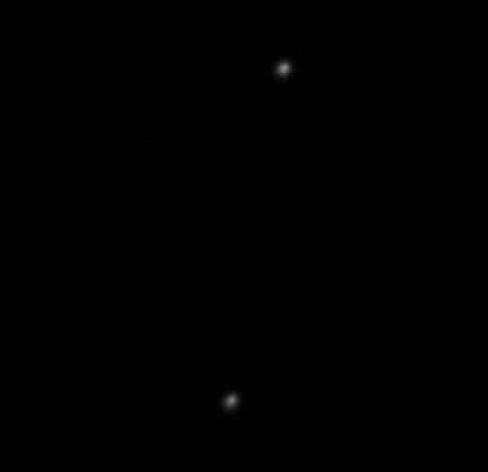Comments on this telescope please?
I'm interested in getting an entry level telescope with the primary goals of lunar and planetary viewing (as opposed to deep space objects). I have a good bit of experience with photography and microscopy. The Celestron Advanced VX 8" EdgeHD appears to be about the level that I'm looking for with a decent, but not huge aperture, Go To system, and reasonable portability.
I have both Nikon and Sony full frame cameras for image capture.
Would you recommend a different scope (somewhere near this price point)?
What accessories do you consider indispensible?
I plan to use the scope to observe the eclipse. Aside from the necessary neutral density filter and suitable eye protection for myself, is there anything else I would need?
Added (1). Thanks everyone. Very helpful
I did purchase the scope
That would be a good scope
Yes, …, that's an excellent scope. You should get some great views with it and capture some great picks. Just remembered, that astrophotograohy is much more difficult than terrestrial photography, so it will take some patience to get it right. Add on top of that learning to use a new scope, getting your alignment right and then capturing and stacking the image.
I took the following image of two elliptical galaxies (NGC6196 & IC4614) near M13 early on Saturday morning (7/22). It took some time to acquire the image and make sure it was properly focused. 
The telescope itself is great, you will not be disappointed with it.
However, you will need to learn some key features about it, that will take time.
You need to learn how to accurately do a polar alignment. This is critical for accurate tracking of whatever objects that you plan at looking at.
Astroimaging. This has an incredibly steep learning curve from the outset. Get comfortable with the basic telescope operation first (setup, teardown, alignment, balancing, power, and basic troubleshooting).
You'll be wanting a autoguider system too, this helps with any mechanical issues within the scopes drivetrain (all scopes have that problem). A system to use is this one.
http://www.telescope.com/...115001.uts
One thing that may influence your camera choice is how the thing is controlled. Canon has a wide array of third party control software, Nikon less so, and Sony even less (Sony rarely used in astroimaging, from what I understand, too much imager noise).
You can get something like this (I used it as my primary camera control with my Canon T5i).
https://www.otelescope.com/files/category/3-backyardeos/
Or this, which has basic image stacking, and processing too.
http://www.stark-labs.com/nebulosity.html
Both of them use the camera's USB port to control the shutter.
But for planetary work, use live view, and movie mode to make a recording, and then cherry pick out the best frames, and then stack them. The earth's atmosphere is way too turbulent to expect to snag just one picture, you'll need hundreds - depending on weather conditions, and then pull out the best ones.
http://www.skyandtelescope.com/astronomy-resources/planetary-imaging-with-your-dslr-camera/
And use something like this.
http://www.astronomie.be/registax/
And the above is just 10 mile high overview of the process. There's much to learn, and loads of practice ahead of you.
https://www.youtube.com/...F8hCxxZQ-g
http://www.stargazing.net/David/astrophoto/index.html
http://www.astropix.com/
EDIT -
Forgot to add the solar filter. You will need a filter that covers the front of the telescope's aperture.
Although the field of view will be about the same diameter - 0.5 degrees.
http://www.highpointscientific.com/celestron-eclipsmart-solar-filter-for-8-sct-edgehd-telescopes-94244
A wide field telescope or using a telephoto lens (minimum 300mm FL) would be better. With the proper size solar filter of course.
http://www.mreclipse.com/SEphoto/SEphoto.html

Visit the Goodwill.
"Aside from the necessary neutral density filter and suitable eye protection for myself"
To be clear, those are completely separate - the and filter must be dark enough to allow you to use the 'scope without any additional protection.
